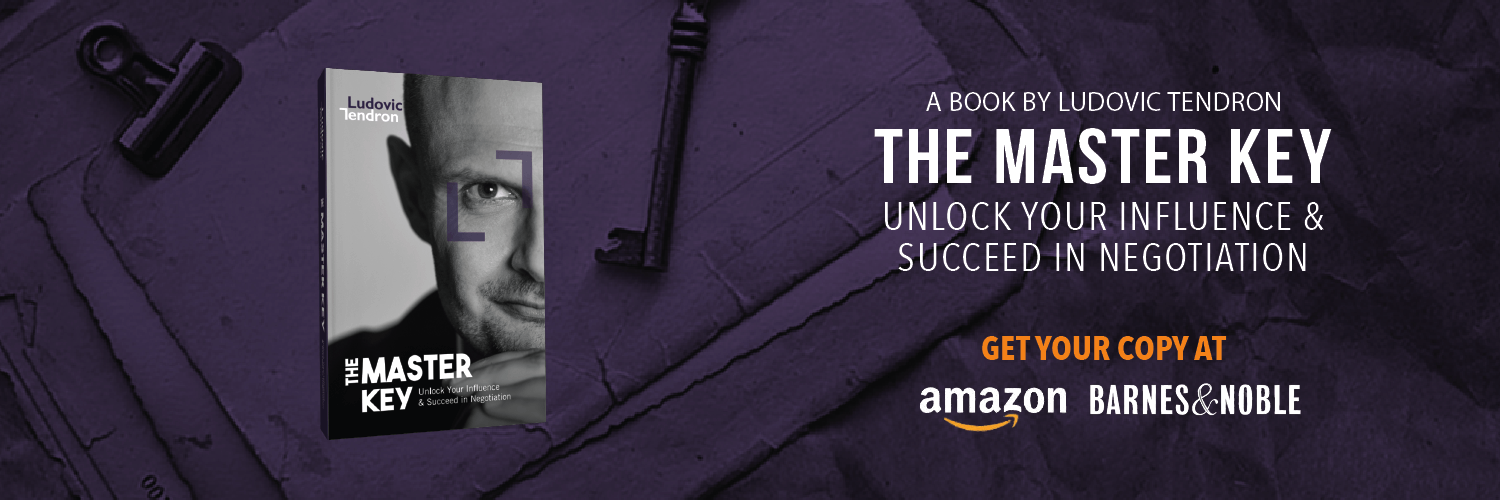The benefits of business dinners are often under-estimated.
Some people may still think that the most economical and efficient way to close a deal is to lock a counter-part in a conference room with a few sandwiches, then “cook” this counter-part for a few hours until he/she signs at the bottom of the page. This may be the case when a commercial agreement needs to be formalised with a team of advisors, but it may not be efficient enough for obtaining a good commercial agreement.
Whether it’s corporates imposing a budget on their employees or a question of choice in allocating resources, do not underestimate the power of business dinners.
8 Reasons why Business Dinners should be better considered:
1) Business dinners are a business accelerator
The Harvard Business Review published in 2013 an article from Mr Lakshmi Balachandra titled “Should we eat while we negotiate?”. The author explores “the reasons why eating while deciding important matters increases productivity of discussions”. She experimented business negotiations on MBA students in 2 different environments: conference room with no food and a restaurant. Students placed in a restaurant were able to generate more profits that those in a conference room.
2) The consumption of glucose provides energy for the brain and help to self-control
Consumption of glucose enhances complex brain activities, boosting self-control and regulating prejudice and aggressive behaviours. Matthew T. Gailliot and Roy F. Baumeister from Florida State University showed in a study titled “The Physiology of Willpower: Linking Blood Glucose to Self-Control” state that “fluctuations in glucose, including even subtle or minor fluctuations, can have a profound impact on self-control. Self-control successes and failures are driven in part by the quantity of glucose and the ability to use it efficiently”.
3) Sharing food increase pro-social behaviour
Research has shown that unconscious mimicking behaviour leads to increased pro-social behaviour; when individuals eat together they unconsciously enact the same movements. This unconscious mimicking may induce positive feelings towards both parties and the matter under discussion (“Advances in Experimental Social Psychology” from Tanya L. Chartrand and Rock van Baaren). This opinion is also shared by Tony Robbins in is book titled “Unlimited Power”.
4) Gastronomic experiences create emotions and emotions lead to conversions
A business dinner to be successful needs to convert into a memorable experience. Successful experiences leads to emotions, which lead to memories. People value people they trust and like. A nice dinner can help you to achieve this objective. Intellect can be confused but emotions never lie.
Emotions also drive conversions. In an article written by Conversion Expert, Peep Laja, explains that McCombs marketing professor Raj Raghunathan and Ph.D. student Szu-Chi Huang discovered that people make decisions based on their emotional response and then use rationale to justify their decision.
Ragunathan suggests that it is best to establish an emotional connection as early as possible, because once counter-parts have decided they like something, the more difficult it is for them to change their minds.
5) Business Dinners are tools for branding and seduction
If it is really worth it, we should put the same effort in a business prospect as we would in a first date. Don’t we all want to create a lasting impression on a date? What will we usually do for this? Most likely arrange for a dinner. A business dinner is a seduction game.
Famous success coach, Tony Robbins, likes talking about our identity, which is our personal brand. We have to promote it the same way a business would. We have to be good at marketing ourselves and therefore influence others. Robbins uses the example of first dates when we are very good at marketing ourselves and when we are at our peak. This moment must be kept as a reference to apply the same strategies and effort to your business dinner. The correlation between a business dinner and a dinner date is quite relevant.
6) Business dinners can be a recipe for unique experiences
It is easier to create a memorable dining experience for your guests if it is a unique experience. Although creating a unique experience comes at a price, people should be reminded a quote from Aldo Gucci: “The bitterness of poor quality is remembered long after the sweetness of low price has faded from memory”.
The more unique the dinner experience is, the better chance it has to remain memorable. I would say that food, wine and service have to be excellent, but it is not enough.
The venue must create a positive or unique atmosphere. Your guest must get the impression that he/she has experienced something new (e.g. a new wine, a new flavour, a new combination or pairing or even a new place). In essence, your guest must feel special.
Your company, the conversation topics you will choose will also form part of the experience of course. You can easily ruin the whole night with just one word, but with a proper nice dinner, your guest will at least have been placed in the right disposition. There are, of course, other factors to consider, like the way you present yourself, your energy level, state of mind, where people should be sitting, etc.
In addition to great wine and food, excellent service and the personality of the chef and his/her interaction with your guests are also important. The choices of the venue and its decoration have an impact. Elegant and warm atmosphere is what people look for. It can be a discrete place for confidential business discussions.
The venue must be appealing by itself and it does not necessarily need to be luxurious. Working with an interior decorator to enhance venues can make a significant impact – like a touch of flowers and candles, even for a business dinner.
7) Dinners are better than business lunches
Although lunches can do the work, they are more limiting. Dinners do not take place during usual working hours and offer a better opportunity to disconnect and have more open and informal business discussions.
Lunches usually give people limited amount of time and very often prevent people from drinking with moderation.
8) Consumption of wine with moderation has a positive impact
A glass a wine has a calming effect and helps the mental transition of stress to relaxation. Someone like David L. Katz, M.D., the founding director of Yale University's Prevention Research Center, and the author of Disease-Proof will tell you that wine calms transiently because it is a central nervous system depressant. Because we expect to be more relaxed with a glass of wine, we automatically respond by becoming more open and chattier in a subconscious attempt to meet our expectation according to psychologists.
CONCLUSION: a memorable dining experience does not only create a favourable context for negotiations but should also be seen as a way to seduce a counter -part and a business accelerator improving productivity of discussions.



